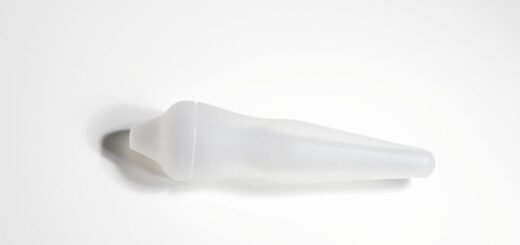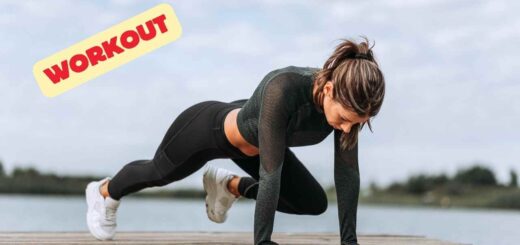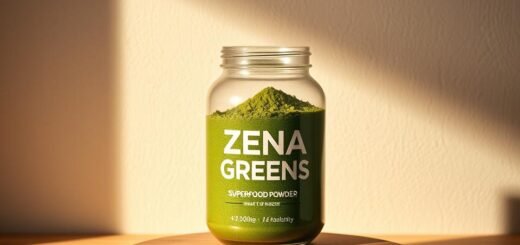Can Pre-Workout Supplements Cause Hair Loss? Here’s What You Need to Know
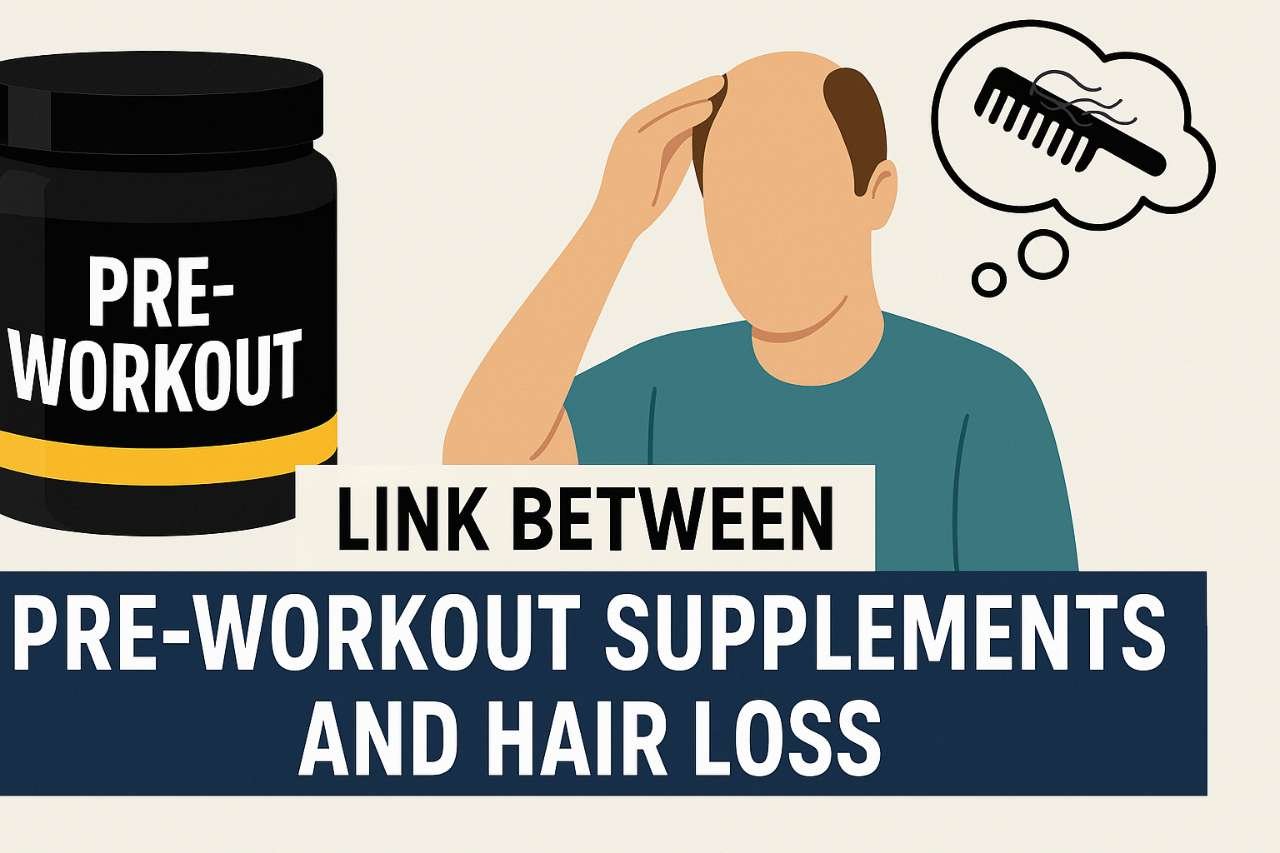
Pre-workout supplements, often referred to simply as “pre-workouts”, are exercise performance enhancing supplements intended to be consumed prior to a workout. They are formulated to provide an extra boost of energy, increase strength, endurance, focus, and motivation during training.
The key ingredients in most pre-workout supplements include:
- Caffeine – Stimulant that increases alertness, focus, and endurance
- Creatine – Supports strength and power output
- Beta-alanine – Reduces fatigue and improves muscular endurance
- Citrulline – Enhances blood flow and oxygen delivery to muscles
- Nitric oxide boosters – Widens blood vessels to increase blood flow and nutrient delivery
- Tyrosine – Amino acid that may enhance focus and motivation
- Taurine – Amino acid with antioxidant properties
- B vitamins – Important for energy metabolism and production
Other common additions include ginseng, carnitine, theanine, CLA, and more. The combination of stimulants, performance boosters, focus enhancers, and ergogenic aids make pre-workout supplements popular with gym-goers looking to optimize their training.
How Pre-Workouts Work
Pre-workout supplements are designed to give you an extra boost of energy and focus before your workout. The ingredients in pre-workouts work in different ways to enhance performance:
- Caffeine – One of the most common ingredients in pre-workouts is caffeine. Caffeine is a stimulant that blocks adenosine receptors in the brain, which helps reduce fatigue and increases alertness and focus. It also mobilizes fatty acids to be used as fuel during your workout. The performance benefits of caffeine are well-documented in research.
- Creatine – Creatine is another staple pre-workout ingredient. It provides muscles with extra energy by increasing the production of adenosine triphosphate (ATP). ATP is the key energy source for high-intensity muscular contractions. Supplementing with creatine can improve strength, power, and muscle mass gains.
- Beta-alanine – This amino acid has been shown to increase muscle carnosine levels. Carnosine helps reduce fatigue and lactate build-up in the muscles, allowing you to train harder for longer. Beta-alanine can boost high-intensity exercise performance.
- Nitrates – Many pre-workouts contain nitrates, which increase nitric oxide levels in the body. Nitric oxide dilates blood vessels and increases blood flow, oxygen, and nutrients to the muscles. This effect is associated with the “pump” feeling during workouts.
- Other ingredients – Pre-workouts may also contain amino acids like citrulline and arginine, B vitamins for energy production, and herbal stimulants like evodiamine and hordenine. The combination of ingredients is designed to take your workout performance to the next level.
So in summary, pre-workout supplements provide an ergogenic (performance-enhancing) effect through ingredients that can increase energy, focus, power, strength, endurance, blood flow, and nutrient delivery to muscles. This gives you the ability to train harder, longer, and more intensely.
Common Pre-Workout Ingredients
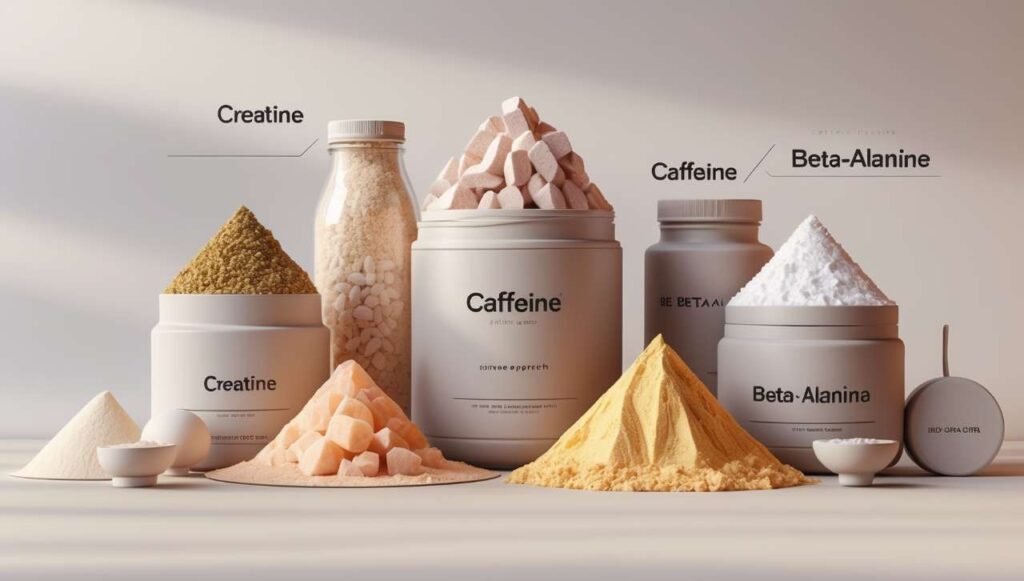
Pre-workout supplements usually contain a blend of ingredients intended to boost energy, focus, and performance. Some of the most common ingredients include:
- Creatine – One of the most widely used and researched sports supplements. It provides muscles with quick energy and helps increase strength and power output. The most common form is creatine monohydrate.
- Caffeine – A stimulant that acts as a central nervous system stimulant. It can temporarily boost alertness, focus, and endurance. The amount of caffeine in pre-workouts varies but is often around 150-350mg per serving.
- Beta-alanine – An amino acid that may help delay fatigue and improve muscular endurance during high-intensity exercise. It causes a tingling or prickling sensation known as paraesthesia.
- Citrulline – An amino acid that may increase nitric oxide production, improving blood flow and oxygen delivery to muscles. This can enhance endurance and aid recovery.
- Taurine – An amino acid that acts as an antioxidant and may also enhance mental focus. It’s thought to work synergistically with caffeine.
- BCAAs – Branched-chain amino acids like leucine, isoleucine and valine help stimulate protein synthesis and slow muscle protein breakdown.
Other common pre-workout ingredients include nitrates, B vitamins, carnitine, and betaine anhydrous. The combinations and doses vary between different products and formulas.
The Link Between Pre-Workouts and Hair Loss
Pre-workout supplements contain various ingredients like creatine, caffeine, beta-alanine, and more, which aim to boost energy, strength, endurance and focus during exercise.
While these supplements are considered relatively safe for most healthy individuals when used appropriately, some research indicates that certain ingredients may contribute to hair loss in those predisposed to male pattern baldness or other forms of hair loss.
The main ingredients of concern are creatine and caffeine. Creatine is thought to potentially accelerate hair loss in some individuals by increasing levels of dihydrotestosterone (DHT) in the body. DHT contributes to hair follicle miniaturization and is a key driver of male pattern baldness.
Meanwhile, caffeine may exacerbate hair loss through its effects on stress hormones. High caffeine intake can increase cortisol levels, which can negatively impact hair growth cycles over time.
However, the research is not entirely conclusive, and these effects likely only manifest in those already prone to genetic hair loss, rather than causing new hair loss on its own. Not everyone who takes pre-workout will experience accelerated hair thinning or shedding. But for some individuals already seeing hair loss, certain pre-workout ingredients may potentially hasten the process.
Creatine and Hair Loss
Creatine is one of the most common ingredients found in pre-workout supplements. It works by increasing the availability of cellular energy in muscles, allowing you to push harder during your workouts.
However, creatine may also increase levels of dihydrotestosterone (DHT) in the body. DHT is a hormone that contributes to male pattern baldness by causing hair follicles to shrink.
Several studies have found a correlation between creatine supplementation and increased DHT levels:
- A 6-week study in rugby players found that creatine supplementation significantly increased DHT levels compared to a placebo. The creatine group had a 56% increase in DHT, while the placebo group had no change.
- A similar study in healthy men also found that just 7 days of creatine supplementation increased DHT by 40%.
- An analysis of multiple studies concluded that creatine can raise DHT levels by up to 56% in just 2 weeks.
The mechanism is not entirely clear, but research suggests creatine may increase DHT by providing more cellular energy needed for its production.
Higher DHT levels are linked to miniaturization of hair follicles and gradual hair loss over time. However, the increase in DHT from creatine is likely transient, returning to normal when supplementation stops.
The evidence suggests creatine can potentially accelerate hair loss in those with a genetic predisposition. But the effects seem to be reversible by discontinuing use. Those already experiencing hair loss may want to exercise caution with creatine-containing pre-workouts.
Caffeine and Hair Loss
Caffeine is a common ingredient in pre-workout supplements. It acts as a stimulant that can boost energy, focus and athletic performance. However, caffeine also affects the body’s stress hormones like cortisol which can contribute to hair loss in some individuals.
Caffeine causes a spike in cortisol production. Cortisol is known as the “stress hormone” and high levels are linked to conditions like anxiety, high blood pressure and insomnia. Prolonged high cortisol can also inhibit hair growth and even cause hair follicles to shrink, resulting in thinning hair or hair loss.
The stimulating effects of caffeine cause cortisol spikes which may aggravate genetic hair loss conditions like male or female pattern baldness. Those already experiencing some hair thinning due to androgenic alopecia may notice faster hair loss when frequently consuming pre-workouts high in caffeine.
Additionally, caffeine can deplete the body’s levels of essential nutrients like zinc, biotin, vitamin D and iron – deficiencies in these nutrients are also associated with increased hair shedding.
The effects on cortisol and nutrient status mean that pre-workout supplements with high caffeine content should be used cautiously by those concerned with hair loss. Limiting caffeine intake from other sources like coffee can also help maintain healthy cortisol and nutrient levels to support hair growth.
Other Ingredients and Hair Loss
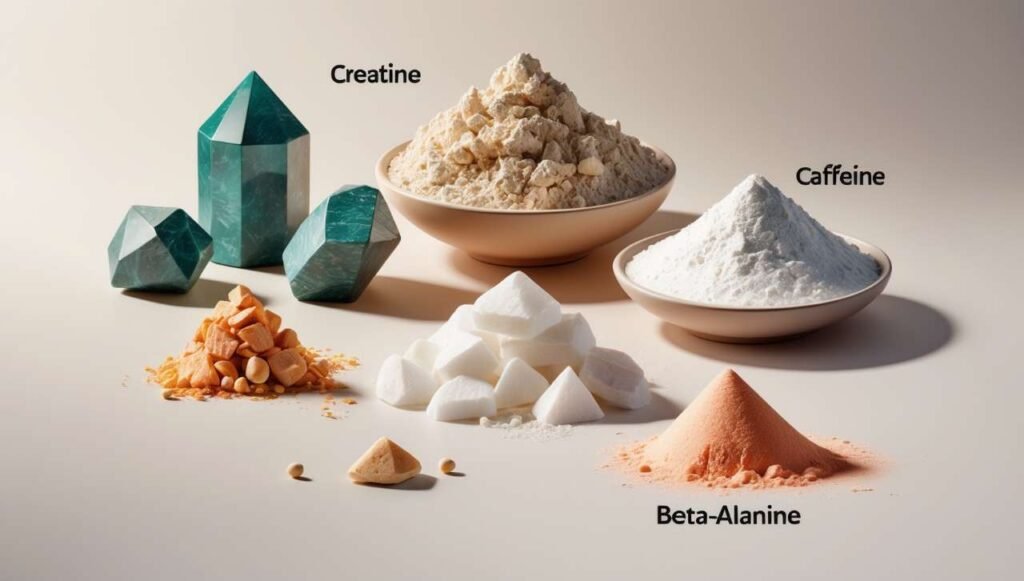
Some other common pre-workout ingredients like beta-alanine, citrulline, and BCAAs have also been linked to potential hair loss in certain individuals.
Beta-alanine is an amino acid that may help boost muscular endurance during exercise. There is limited evidence that high doses of beta-alanine could potentially lead to hair loss or thinning in those predisposed. The proposed mechanism is that beta-alanine binds to hair follicles, causing them to constrict and reduce growth. However, more research is needed to confirm this effect.
Citrulline is another amino acid in pre-workouts believed to enhance performance and endurance. There are a few reports of citrulline supplements leading to temporary hair shedding, but no conclusive studies. The reasons are unclear but may be due to citrulline’s role in increasing nitric oxide production or other metabolic effects.
Branched-chain amino acids (BCAAs) like leucine, isoleucine and valine are also common in pre-workouts. While BCAAs are important for muscle protein synthesis, there are anecdotal reports of hair loss at very high intakes. This may be related to their effects on hormones or nutrient imbalances. However, more research is required to understand if BCAAs directly affect hair growth.
In summary, some other pre-workout ingredients may potentially contribute to hair loss in sensitive individuals, especially at very high doses. However, the evidence is limited and mechanisms unclear. Those prone to hair loss should be cognizant of all supplement intakes.
Other Factors That Cause Hair Loss
Hair loss can be caused by a variety of factors unrelated to pre-workout supplements. Here are some of the main causes:
Genetics
Male and female pattern baldness is largely determined by genetics. People who are predisposed to hair loss will likely experience thinning hair and receding hairlines as they age, regardless of lifestyle factors. If hair loss runs in your family, you may be at an increased genetic risk.
Hormones
Hormonal changes and imbalances can disrupt the hair growth cycle and cause temporary or permanent hair loss. For example, women may experience thinning hair after pregnancy or menopause due to dropping estrogen levels. Thyroid disorders, such as hypothyroidism, can also lead to hair loss.
Medications
Certain medications are known to cause temporary or permanent hair loss as a side effect. Some examples include acne medications containing vitamin A, blood thinners, antidepressants, NSAIDs, birth control pills, and chemotherapy drugs. Hair loss typically improves after stopping the medication.
Diet
A nutritionally inadequate diet lacking in protein, iron, zinc, vitamin B12, and other micronutrients can impair hair health and trigger shedding. Crash dieting, fasting, and eating disorders like anorexia can also contribute to hair loss over time.
Aging
Hair loss is a natural part of the aging process. The onset of androgenetic alopecia causes hair to gradually thin out as people get older. Women may notice their hair becoming finer and shorter as they age.
Stress
High stress levels over long periods can negatively impact the hair growth cycle and cause hair to prematurely enter the shedding phase. Managing stress properly can help curb stress-related hair loss.
Scalp Conditions
Skin conditions that affect the scalp, such as seborrheic dermatitis and psoriasis, can cause inflammation and hair shedding. Treating the underlying scalp condition clears up hair loss.
Hairstyles
Certain hairstyles that pull on the hair follicles too tightly, like tight braids, buns, or ponytails, can lead to traction alopecia and gradual hair loss. Avoiding excessively tight hairstyles prevents damage to the follicles.
Heat Styling
Frequently using heating tools like curling irons and hair dryers can damage hair follicles over time and cause breakage and thinning hair. Limiting use of heat styling helps minimize hair loss.
Tips to Limit Hair Loss from Pre-Workouts
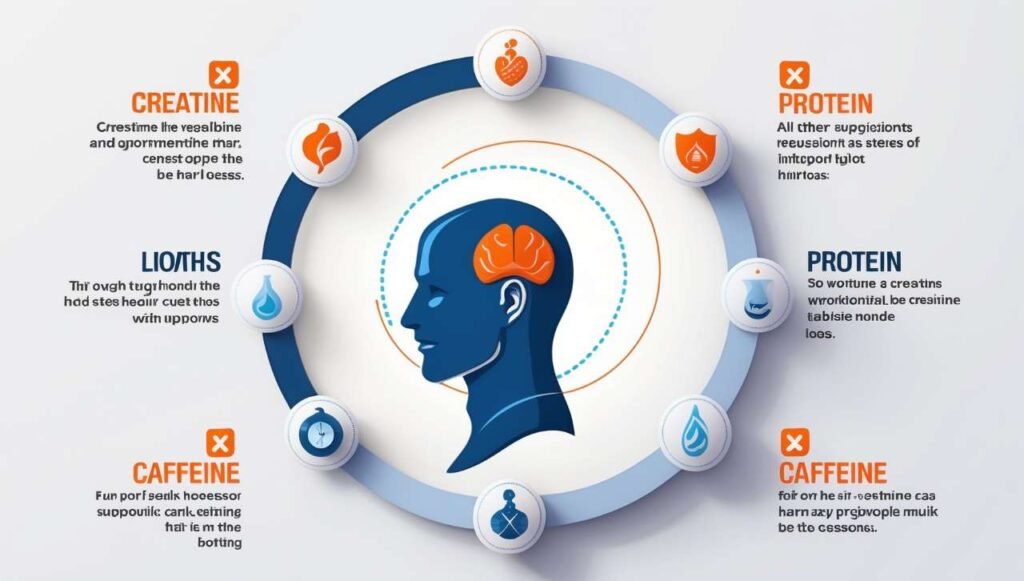
Pre-workouts can potentially contribute to hair loss in some individuals due to ingredients like creatine and caffeine. However, there are steps you can take to minimize hair loss from pre-workout supplements:
- Cycle on and off pre-workouts – Avoid taking pre-workout every day. Take regular 1-2 week breaks from using pre-workout to allow your body to reset. This prevents buildup of ingredients that may affect hormones and hair growth.
- Take lower doses – Stick to the recommended serving size and avoid mega-dosing pre-workout. Too much can increase the risk of side effects.
- Stay hydrated – Drink plenty of water before, during and after your workout. Dehydration can exacerbate hair loss.
- Take hair growth supplements – Certain supplements like biotin, vitamin D, zinc and iron can support hair growth and counteract any hair-damaging effects of pre-workouts.
- Use pre-workouts without creatine – If you’re prone to hair loss, opt for stimulant-based pre-workouts without creatine. Or take creatine separately from your pre-workout.
- See a doctor – If you notice significant hair shedding after taking pre-workouts, see a dermatologist to rule out other potential causes of hair loss.
- Try natural pre-workouts – Some people sensitive to ingredients in commercial pre-workouts do better with natural options like coffee, green tea and bananas.
Being attentive and proactive can allow you to enjoy the benefits of pre-workout while minimizing unwanted side effects like hair loss.
Conclusion
In summary, there are a few ingredients commonly found in pre-workout supplements that may contribute to hair loss in some individuals. The main culprits are creatine and caffeine.
Creatine can increase DHT levels which can accelerate male pattern baldness in those with a genetic predisposition. Caffeine may also play a role by interfering with absorption of nutrients like zinc and iron that are important for healthy hair growth.
However, the research is still limited and inconclusive when it comes to pre-workouts as a direct cause of hair loss. There are many other factors like genetics, hormonal changes, medications, and poor nutrition that also contribute to thinning hair.
The risk of hair loss from pre-workout supplements seems low for most people if taken at reasonable doses. But for those already experiencing thinning hair, limiting intake of creatine and caffeine or cycling on and off pre-workouts may help reduce any further hair shedding. Always follow label directions and consult a doctor if you have concerns.
To minimize any potential hair loss risk, focus on getting enough vitamins, minerals, protein and omega-3s through your diet. Stay well hydrated, use gentle hair products, and manage stress levels. With some care taken, pre-workout supplements can likely be used safely without accelerating hair shedding in the majority of people.
